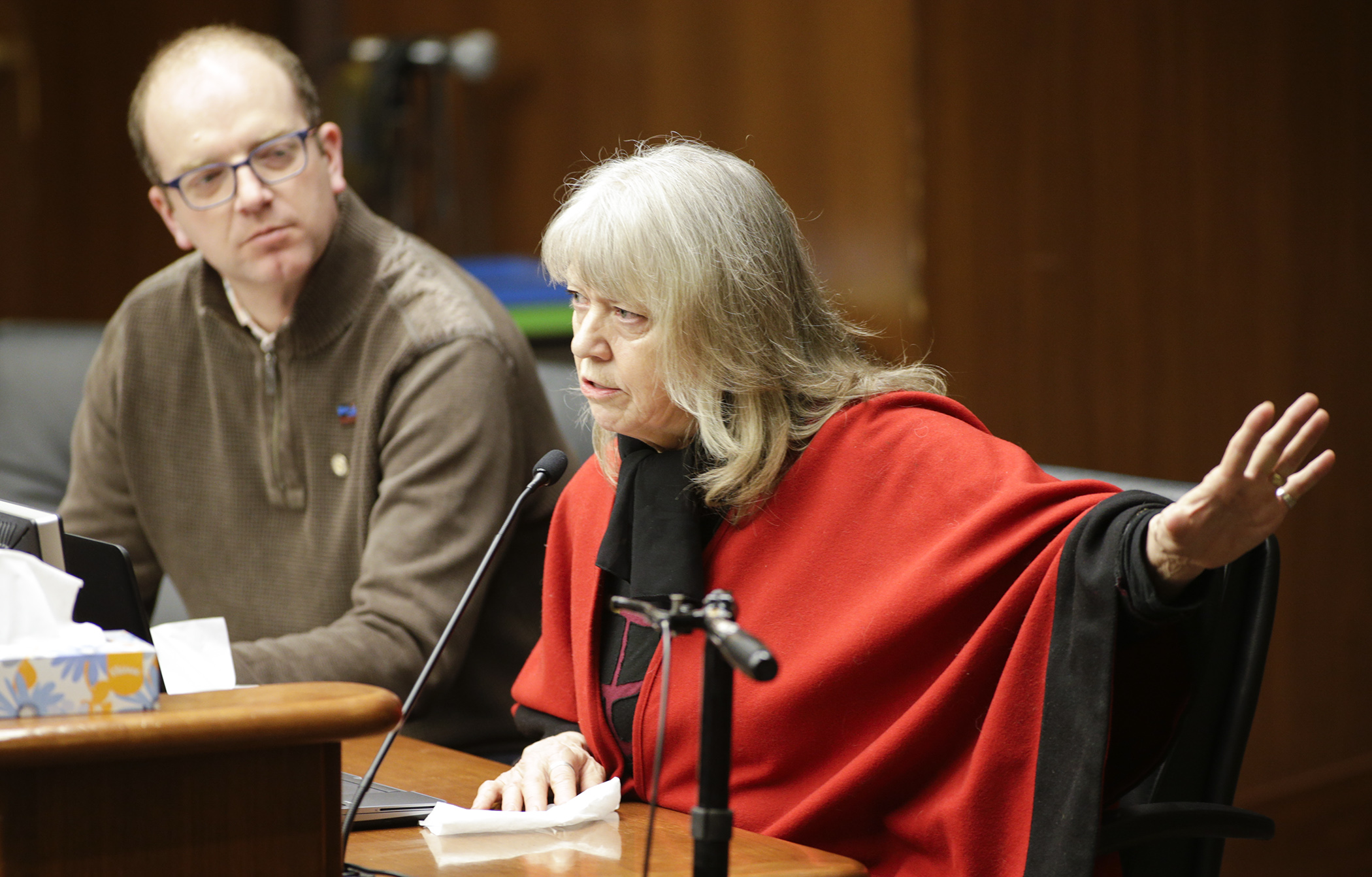Funding to reduce conflicts between livestock and wolves moves forward

An innovative program seeking to reduce interaction between wolves and livestock is hoping to find expanded funding in the next biennial budget.
Sponsored by Rep. Brad Tabke (DFL-Shakopee), HF1630 seeks $400,000 in the 2020-21 biennium to fund Wolf-Livestock Conflict Prevention Grants administered by the Department of Agriculture. That would represent an increase of $160,000 over the current biennium.
The House Agriculture and Food Finance and Policy Division laid the bill over Tuesday for possible omnibus bill inclusion.
Key to the program is the use of guardian animals; physical barriers such as fences, pens and shelters; and lights and alarms.
“We have not had a predatory issue in over 25 years,” testified Mary Falk. “And the reason is that we run livestock guardian dogs.”
Falk and her husband raise cattle, goats, sheep and poultry on a farm with a wildlife refuge running through its middle. Both coyotes and wolves cross their property. The guardian dogs ensure those animals keep moving instead of approaching livestock, as predators are adverse to engaging, she said.
While the dogs require training – for both the dog and the farmer – Falk pointed out that, “It’s a lot cheaper to prevent a problem than solve a problem.”
Rep. John Poston (R-Lake Shore) noted the effectiveness of guardian animals, which can include other species such as donkeys.
The grant program, which has been in place for two years, has funded almost half of the applications it has received, according to Tabke.
The cost of depredation each year can fluctuate depending the number of predatory attacks and market prices for cattle. In 2018, wolf depredation cost the state $161,212 in compensation to livestock owners.
The companion, SF1582, sponsored by Sen. Carrie Ruud (R-Breezy Point), awaits action by the Senate Agriculture, Rural Development, and Housing Finance Committee.
Related Articles
Search Session Daily
Advanced Search OptionsPriority Dailies
Ways and Means Committee OKs proposed $512 million supplemental budget on party-line vote
By Mike Cook Meeting more needs or fiscal irresponsibility is one way to sum up the differences among the two parties on a supplemental spending package a year after a $72 billion state budg...
Meeting more needs or fiscal irresponsibility is one way to sum up the differences among the two parties on a supplemental spending package a year after a $72 billion state budg...
Minnesota’s projected budget surplus balloons to $3.7 billion, but fiscal pressure still looms
By Rob Hubbard Just as Minnesota has experienced a warmer winter than usual, so has the state’s budget outlook warmed over the past few months.
On Thursday, Minnesota Management and Budget...
Just as Minnesota has experienced a warmer winter than usual, so has the state’s budget outlook warmed over the past few months.
On Thursday, Minnesota Management and Budget...